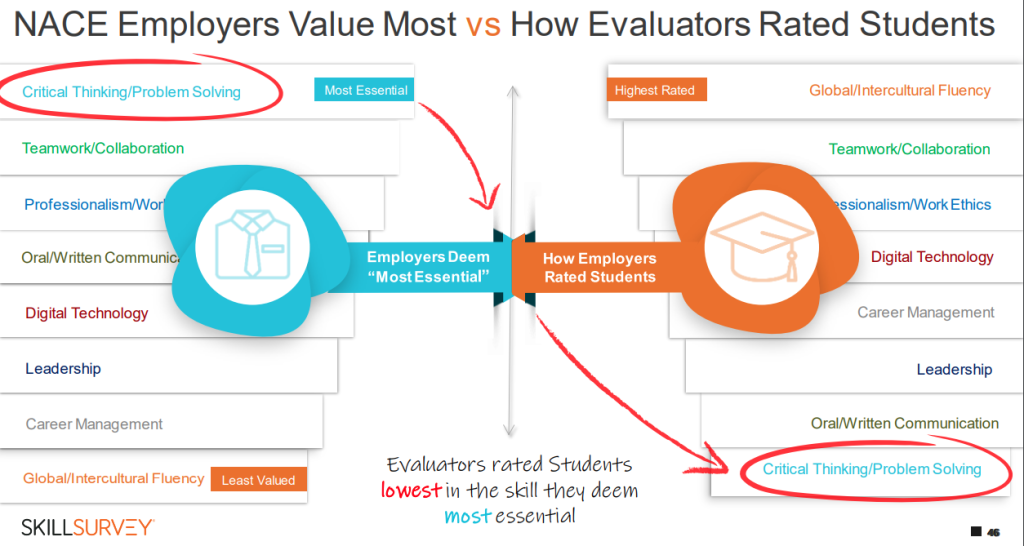
Note: This blog is the second in a series of blogs. Click here to read Part 1: The What and the Why.
Ensuring that students are graduating with skills that make them career ready is becoming a priority. The chart below, from NACE’s Job Outlook 2023, illustrates that the career competencies that employers are valuing most in new hires is not aligning with how the students are performing, as evaluated by their employer. On average, students have the most face-to-face time with campus faculty and staff during their collegiate career making this time together even more valuable to ensuring students are Becoming Career Ready. Curating career connections to the workplace through real world experiences, hands-on simulations, research or experiential learning opportunities will help students to develop these core skills.

How can faculty and staff work career competencies into their roles with students?
Start with a lighter lift – awareness and alignment. Use the competencies in conversations and written communication with students to draw awareness to the importance of these skills.
Whether this is within the syllabus, course/club descriptions, assignments, rubrics, or evaluations, reiterating these 8 competencies across disciplines, campus organizations and the like will help students draw connections between these skills and what they look like in action. Students will be able to see that competencies such as critical thinking and leadership take on different forms when performed in the classroom or laboratory setting compared to the workplace, athletics, or organization events/meetings. This will help students to articulate the many ways in which these skills are deployed in their own lives.
Moving beyond awareness, bridging the connection by aligning student goals (like course learning objectives or student employment evaluations) and the NACE competencies will help students see the behavior in action. When asking students to analyze data or reflect on a process or piece of writing, mention critical thinking. Posting an announcement about an upcoming due date or how to request an extension? Communication deserves a shout out.
The same can be done within assignments, job descriptions or advising expectations. Is a student utilizing office hours or requesting advising sessions? Proactively developing oneself is a competency – Career & Self Development. Use competency language next to the actions to visually make the connection obvious for students.
Examples of such assignments have been submitted by faculty and are posted in the Center for Career Development’s HuskyCT organization, Career Readiness Resources for Classroom and Advising Integration. Request access here.
Want to collaborate as you begin to curate career content specific to your course? Reach out to the Career Center’s Program Designer, Kaitlyn Anderson.
